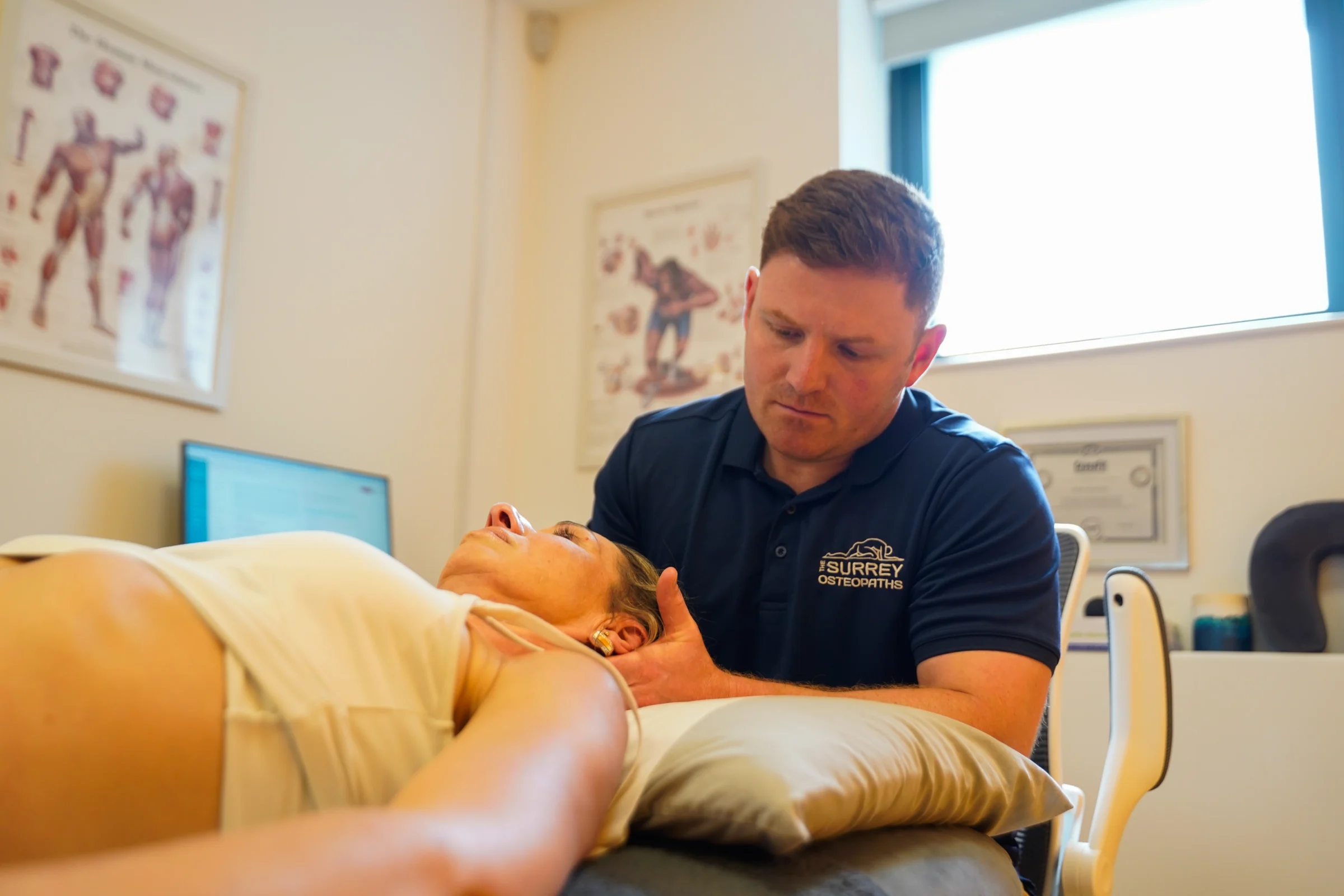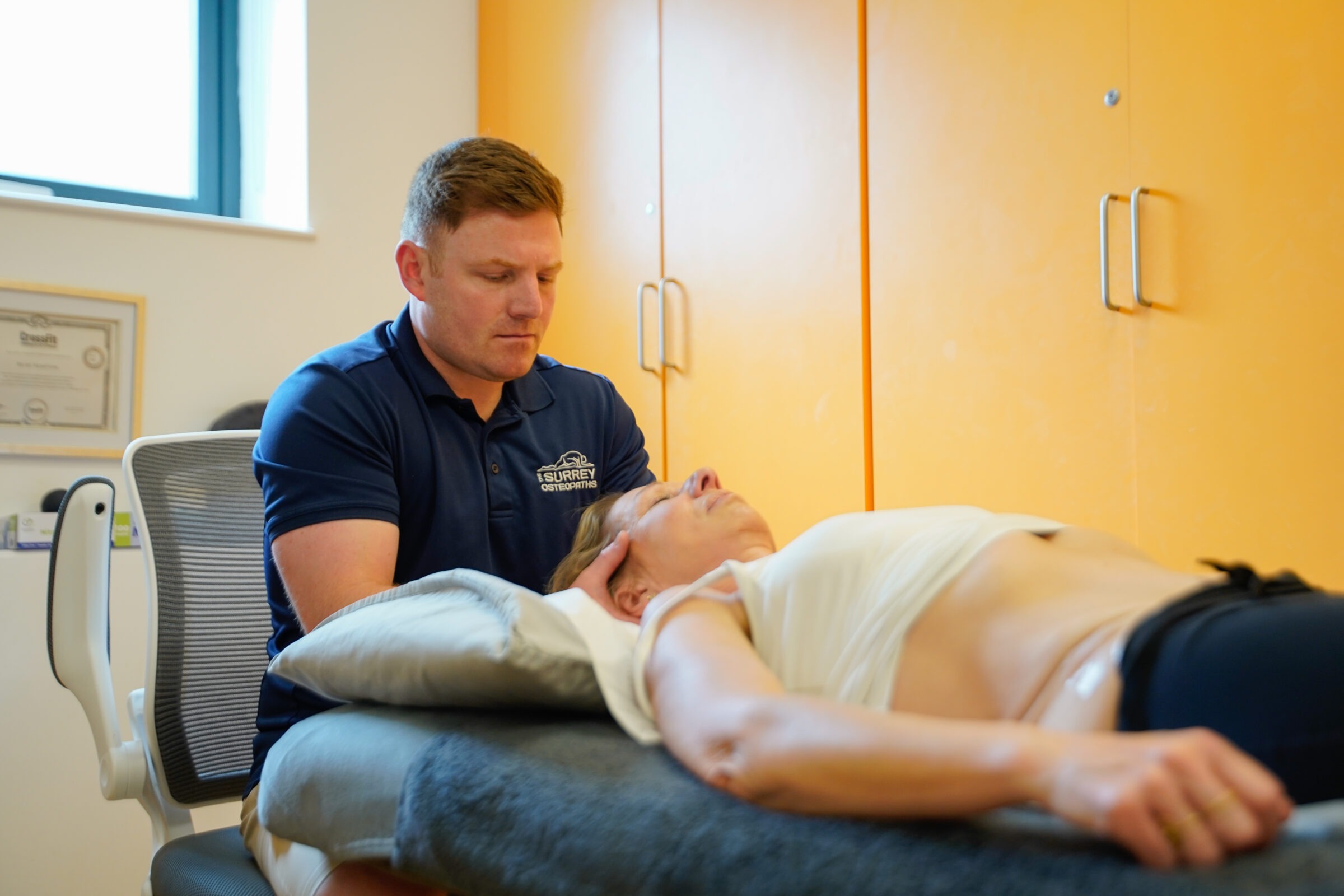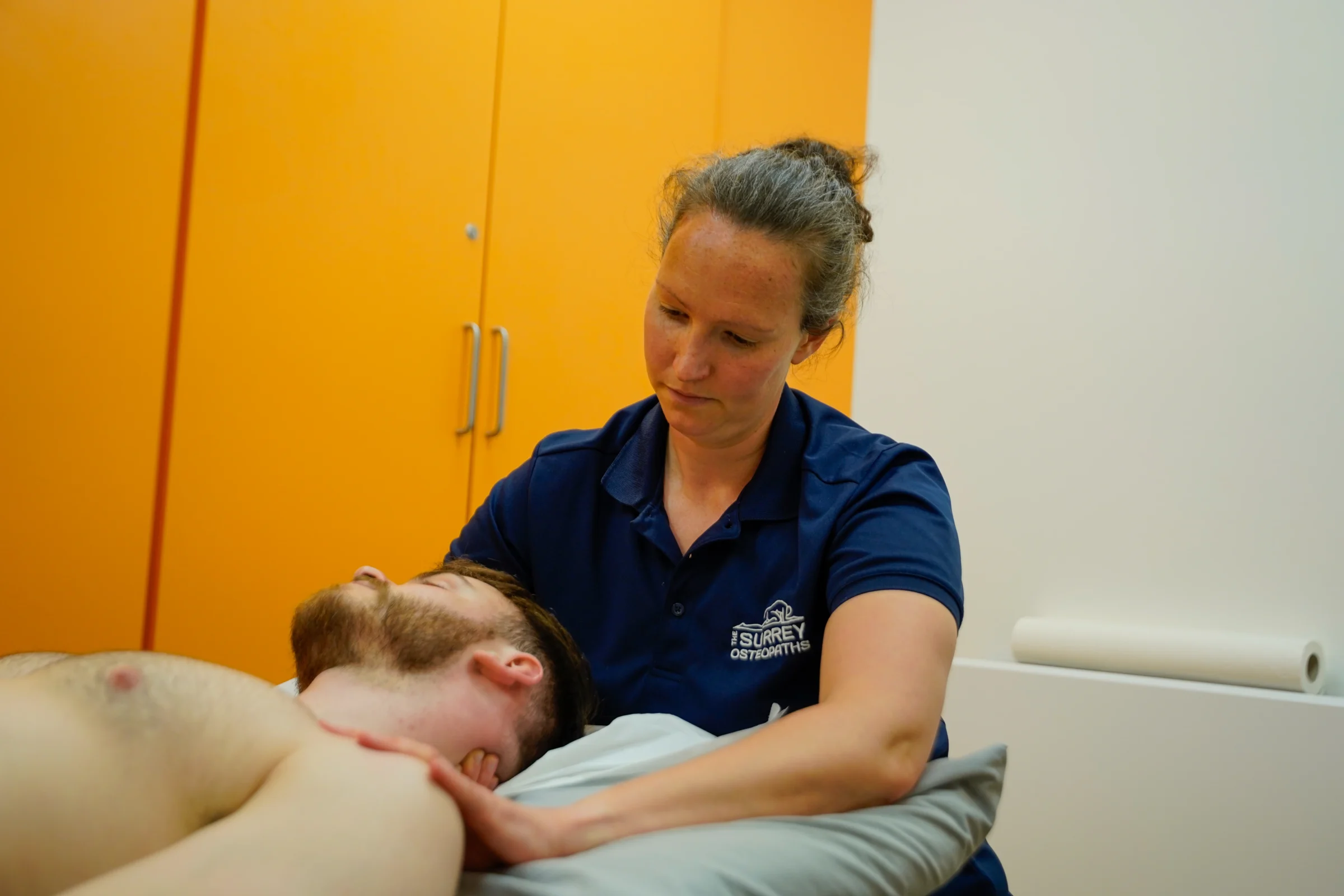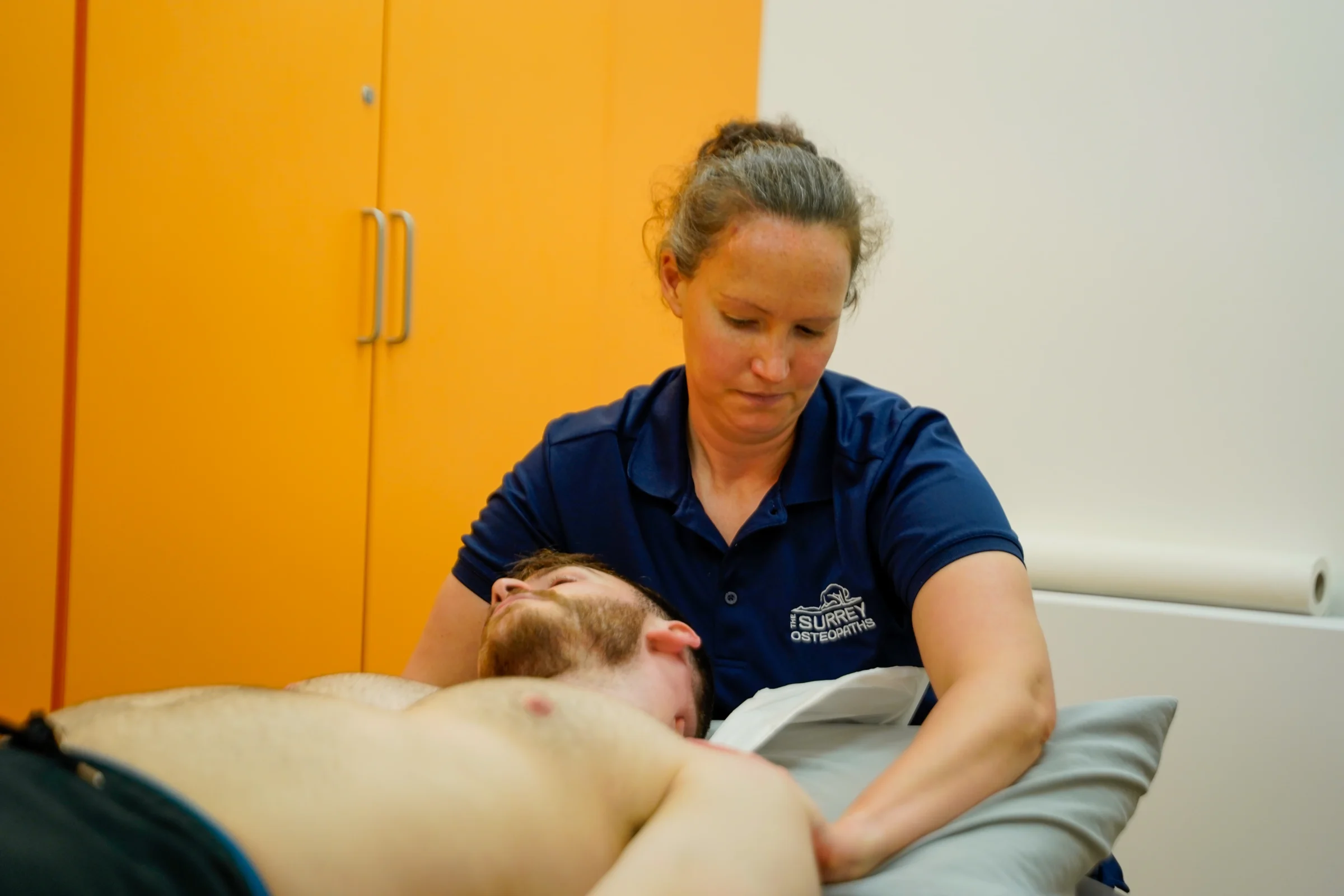The Gentle Art of Cranial Osteopathy
Cranial Osteopathy is a refined and subtle form of osteopathic treatment that uses very gentle touch to release tensions within the body. Rather than focusing only on the skull, cranial osteopathy addresses the entire body. Practitioners feel for rhythmic, involuntary movements—known as the cranial rhythm—that are present throughout the body’s tissues. By gently encouraging balance and alignment, cranial osteopathy supports the body’s natural self-healing mechanisms.


What Does Cranial Osteopathy Involve?
Treatment is performed typically lying down in a relaxed position. Using highly trained palpation skills, the osteopath detects areas of tension, restriction, or imbalance and applies precise, gentle techniques to aim to restore the cranial rhythm.
Cranial osteopathy is non-invasive, deeply calming, and suitable for people of all ages—from newborns to the elderly.
Cranial osteopathy is often used alongside other structural techniques so speed up recovery.
Who Can Cranial Osteopathy Help?
Cranial osteopathy may benefit a wide range of individuals:
For Babies and Children:
- Birth trauma or difficult delivery
- Colic, reflux, or unsettled behaviour
- Feeding or latching difficulties
- Flat head (plagiocephaly) or head-turning preference
For Adults:
- Headaches or migraines
- Stress, anxiety, or sleep issues
- Jaw tension (TMJ dysfunction)
- Chronic neck or back discomfort
- Fatigue or poor concentration
For Older Adults:
- Balance or coordination problems
- Mobility limitations
- Recovery from illness or surgery
Cranial osteopathy is particularly valued for its gentle nature, making it an excellent option for people seeking a more subtle approach to pain relief, nervous system support, and overall health.


Is It Right for You?
If you’re seeking a gentle, holistic treatment that addresses not just symptoms but their underlying causes, cranial osteopathy may be a powerful addition to your health journey. Every treatment is tailored to the individual, and your osteopath will take time to understand your concerns and medical history before treatment begins.